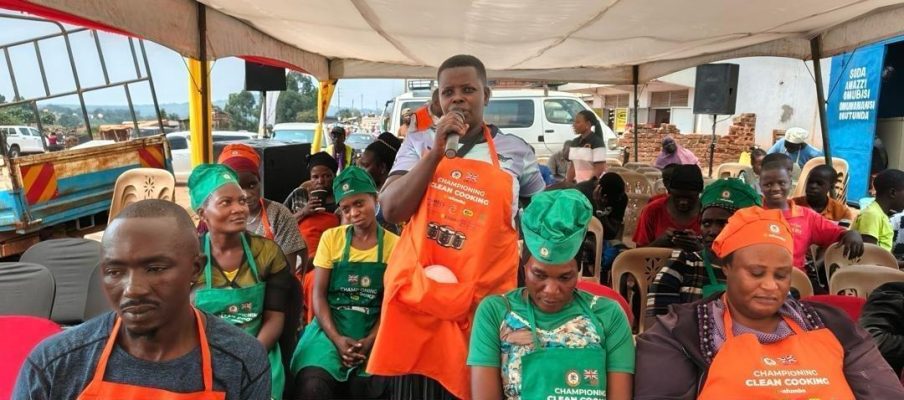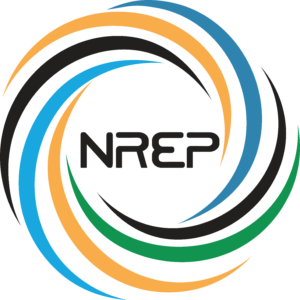On 20th August, 2025, the National Renewable Energy Platform (NREP) held a clean cooking workshop at the central market in Mpigi as part of the week-long behavioral change outreach campaign. The broader outreach campaign lasted from the 18th -22nd August 2025, under the Behaviour Change Communication for Electric Cooking (BCCeC) Project. The BCCeC is funded by UK Aid through the Modern Energy Cooking Services (MECS) programme and implemented by NREP with the support of the Ministry of Energy and Mineral Development (MEMD).
This event brought together government representatives, clean cooking technology providers under UNACC, and community members to raise awareness about the negative impacts of cooking with traditional biomass to human health and the environment, make a case for clean cooking technologies and practically demonstrate their functionality. The workshop activities included technology demonstrations, interactive discussions, and a cooking competition, all geared toward encouraging behaviour change and accelerating Uganda’s clean energy transition in Mpigi town.
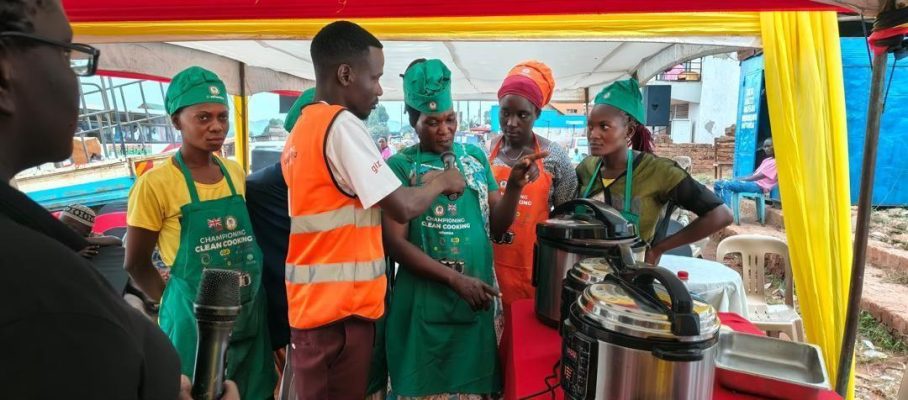
Key Highlights
Mariah Kizza from NREP officially launched the event, welcoming participants and leading an interactive session focused on clean cooking awareness. She engaged the community in discussions about traditional cooking methods particularly the use of charcoal stoves— highlighting their health risks and inefficiencies.
Mariah introduced modern clean cooking technologies such as Electric Pressure Cookers (EPCs) and solar cooking stoves as alternatives, explaining their benefits in terms of cost savings, efficiency, and reduced cooking time. She also explained the e-cooking tariff, helping participants understand the economic advantages of switching to ecooking.
The session included open dialogue, with community members sharing their cooking habits, daily charcoal expenses, and related challenges, revealing that charcoal was the most dominant cooking fuel followed by firewood used to prepare three meals daily.
During his address, the Resident District Commissioner (RDC) expressed gratitude to participants and commended the efforts of the NREP and MEMD for introducing the clean cooking initiative in Mpigi town.
The RDC emphasized the serious health risks of traditional cooking methods, such as indoor air pollution, respiratory diseases, cancer, and the dangers children face while collecting firewood. He advocated for the inclusion of medical professionals in future outreach events to raise awareness about these health hazards and encouraged residents to seek regular medical checkups.
To improve accessibility, he called for the creation of official outlets in Mpigi for clean cooking appliances. He concluded by encouraging residents to become clean cooking ambassadors.
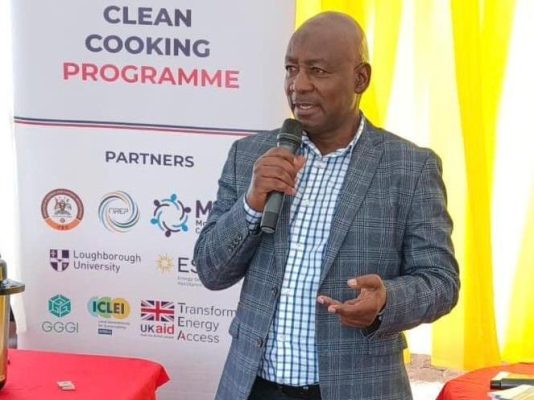
The crowning moment of the event was a live cooking demonstration in which residents actively participated in preparing a variety of local dishes, including karo, rice, Irish potatoes, meat, and beans. During the demonstration, a comparison was made between cooking beans on a traditional charcoal stove and using an Electric Pressure Cooker (EPC). It was observed that the EPC cooked the beans significantly faster than the charcoal stove.
Residents noted that the food prepared using the EPC was not only more flavorful but also saved time, allowing them to attend to other household tasks. The demonstration helped reinforce the practical benefits of modern cooking technologies in terms of efficiency, safety, and improved food quality.
Key Challenges & Solutions Shared
While the community engagement was strong and interest in clean cooking technologies was evident, several challenges were raised during group discussions that could hinder widespread adoption. A summarized account of these is presented below:
- Affordability :
- High cost of appliances and limited financing options
- Awareness and KM:
- Low awareness and technical knowledge
- Fear of electricity costs and how to use electric
- Technical and Standards:
- Lack of technical knowledge
- Limited local technicians for maintenance
- Accessibility:
- Limited availability of appliances in rural areas
- Reliability:
- Unreliable electricity supply
- High electricity tariffs
To address these challenges, participants proposed several actionable solutions:
- Accessibility:
- Improving accessibility through the establishment of local distribution outlets for appliances
- Affordability:
- Subsidizing equipment to make it more affordable for low-income households and reducing on electricity tariffs.
- Awareness and KM:
- Expanding community sensitization and awareness campaigns to improve knowledge and perceptions
- Financial:
- Providing financial support through credit schemes, pay-as-you-cook models, and microloans
- Technical:
- Training local technicians to handle appliance maintenance and repairs
Rehema Ssengooba was appointed as the Chairperson Clean cooking for the Mpigi Community to support those interested in accessing the new technologies.
These insights underscore the importance of combining technological innovation with targeted community engagement, financial inclusion, and policy support. Future interventions should prioritize accessibility, affordability, and education, while also strengthening coordination with local authorities and stakeholders to ensure long-term impact.
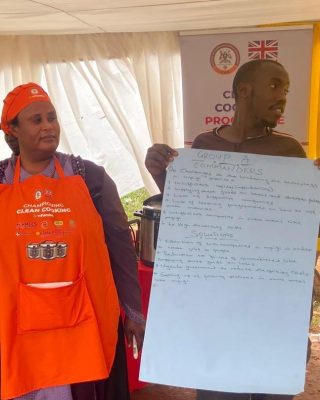
Conclusion
The outreach offered valuable insights into the community’s energy needs and the challenges they face in adopting clean cooking solutions. It revealed a strong interest in modern cooking technologies, while also underscoring the need to improve awareness, affordability, and accessibility.
The cooking demonstration effectively showcased the efficiency, safety, and enhanced food quality of appliances like the Electric Pressure Cooker. Residents appreciated the hands on experience and interaction with the EPC’s , the time-saving aspect, which enables them to manage other responsibilities, further reinforcing the potential of modern cooking methods to transform daily life in rural communities.
NREP is fully dedicated to helping more people learn about clean cooking and will continue to hold planned activities and events by invitation, all aimed at supporting Uganda’s goal of making clean cooking available to everyone by 2030.
